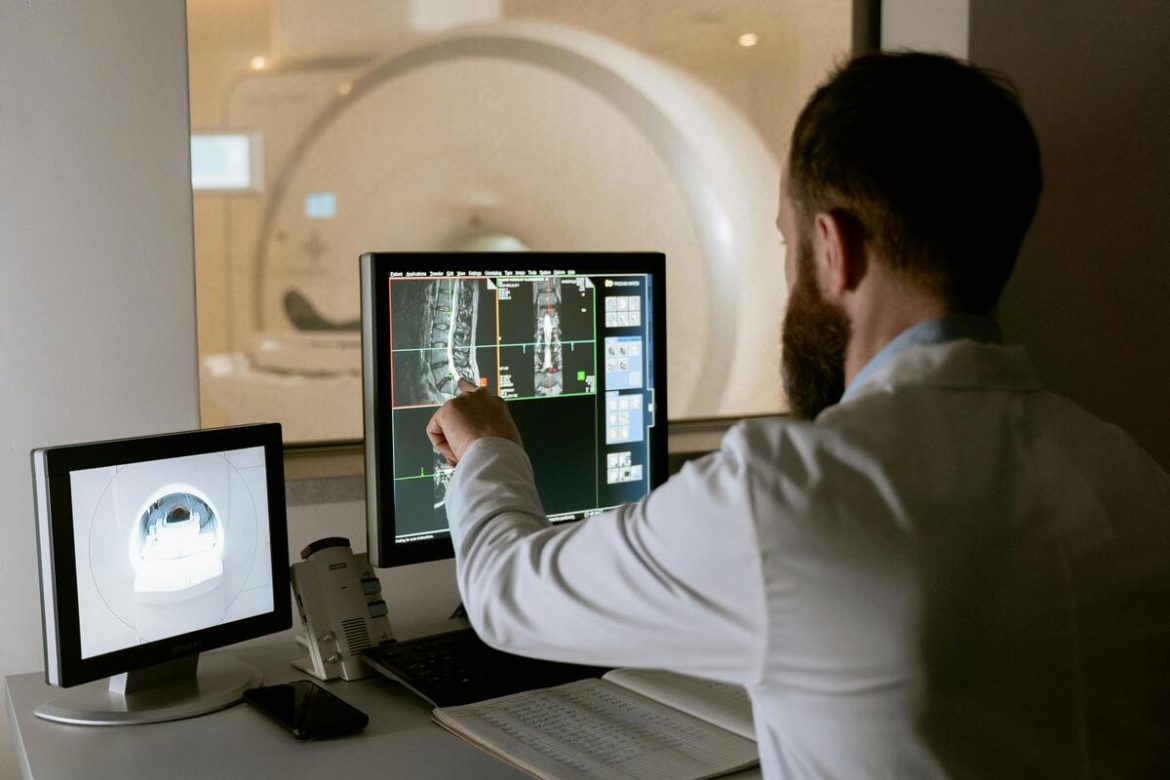Introduction
Diagnosing Multiple Sclerosis (MS) early is critical to managing the disease effectively and preserving long-term function. However, early-stage MS can be difficult to distinguish from other neurological disorders, and traditional MRI interpretation often relies on subjective assessments. Now, artificial intelligence (AI) is transforming this process by enabling faster, more accurate detection of MS lesions on MRI scans.
This article explores how AI is enhancing MS diagnosis, current developments in AI-powered imaging, and what this technological leap means for patients and neurologists.
The Need for Early and Accurate MS Diagnosis
MS symptoms can be subtle and vary widely among individuals. Early symptoms like fatigue, numbness, or vision changes are often dismissed or misattributed. As a result, some patients experience diagnostic delays of up to 2 years.
Traditional Challenges:
- Lesions may not be visible on early MRIs
- Radiologist interpretation is subjective and inconsistent
- Other conditions like neuromyelitis optica (NMO) or migraines can mimic MS
Early treatment can slow disease progression, reduce disability, and improve quality of life. Thus, enhancing diagnostic accuracy is paramount.
How AI Enhances MRI Analysis
AI, particularly deep learning models, has shown exceptional promise in analyzing brain MRI scans to identify MS-related abnormalities with greater precision.
Key Capabilities of AI-Powered MRI Tools:
- Automated lesion detection and segmentation
- Differentiation between MS lesions and those from other causes
- Pattern recognition to distinguish MS from NMO or vascular disorders
- Quantitative lesion tracking over time
One such system, developed by a team at MIT and published in Nature Biomedical Engineering (2025), can analyze MRI scans 50% faster than human radiologists with 97% diagnostic accuracy.
Recent Breakthrough: NeuroScan AI v3.0
NeuroScan AI v3.0, developed by NeurOptix Technologies, recently completed clinical validation across six neurology centers in the U.S. and U.K.
Features:
- Integrates with hospital PACS systems
- Uses convolutional neural networks (CNNs) trained on over 200,000 MS scans
- Provides heat maps and lesion volume measurements
- Flags atypical patterns for radiologist review
In pilot studies involving 800 patients:
- Reduced misdiagnosis rates by 31%
- Cut MRI analysis time from 22 minutes to under 5 minutes
- Detected subclinical lesions invisible to the naked eye
AI and the McDonald Criteria
The 2017 McDonald Criteria are the gold standard for MS diagnosis, relying heavily on MRI evidence of dissemination in space and time.
AI tools now assist neurologists by:
- Automatically applying the McDonald criteria
- Detecting new vs. old lesions through longitudinal comparisons
- Recommending probable MS diagnoses based on image pattern recognition
This minimizes human error and standardizes assessments, especially in less-experienced clinical settings.
Benefits for Patients and Clinicians
AI’s integration into diagnostic radiology is creating tangible benefits:
For Patients:
- Faster diagnosis leads to earlier treatment
- Fewer misdiagnoses and unnecessary tests
- Clearer communication with visual AI overlays
For Clinicians:
- Reduces diagnostic workload
- Supports less-experienced radiologists
- Enables data-driven second opinions
Regulatory Approvals and Deployment
As of April 2025, NeuroScan AI v3.0 received FDA clearance for clinical use, joining other AI platforms such as:
- DeepNeuroMS (approved in Europe)
- BrainSeg AI (CE-marked and in use across 50 hospitals)
Hospitals across North America are integrating AI tools into their neurology and radiology departments. Some institutions report a 20% reduction in time to MS diagnosis within the first 6 months of AI adoption.
Ethical Considerations and Limitations
AI tools must be used responsibly, with physicians remaining the final decision-makers. Challenges include:
- Algorithm bias based on non-diverse training data
- False positives leading to unnecessary anxiety
- Data privacy in AI platforms connected to cloud storage
As AI adoption grows, transparency in algorithm development and patient data protection remain crucial.
What the Future Holds
AI’s role in MS is likely to expand beyond diagnosis:
- Monitoring disease progression using AI MRI analysis
- Predicting relapse risk based on lesion activity
- AI-assisted treatment response evaluations
Long term, AI may be paired with wearable data (like mobility or fatigue trackers) for a comprehensive view of disease status in real time.
Expert Commentary
Dr. Luis Fernandéz, neuroradiologist at King’s College London, commented:
“AI will not replace radiologists, but those who use AI will replace those who don’t. For MS diagnosis, it’s a game-changer.”
Patient advocate and blogger Julie L. shared:
“I was misdiagnosed for years. If AI can help catch MS earlier for others like me, that’s a huge win.”
